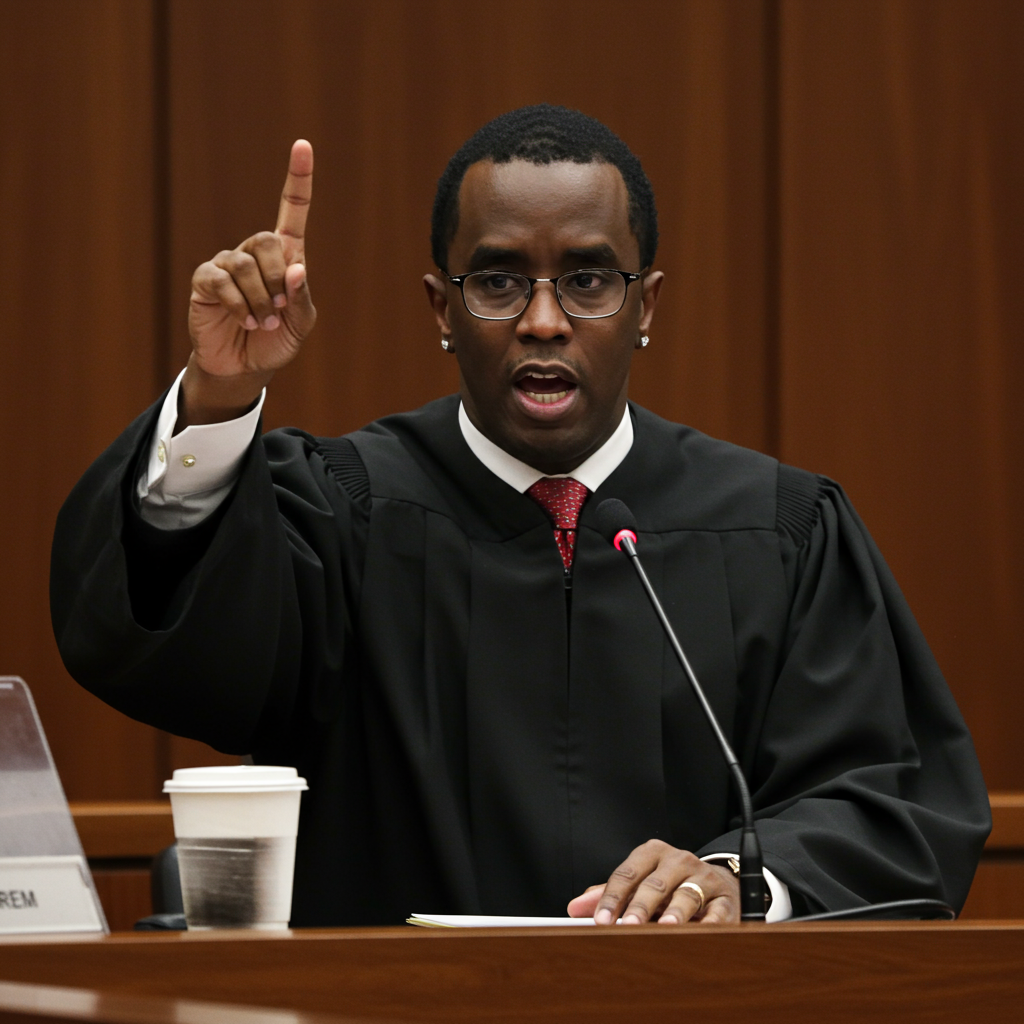apple has finally scored a significant win on the big screen. The company’s film “F1,” starring Brad Pitt, has emerged as a genuine <a href="https://news.quantosei.com/2025/06/30/brad-pitt-achieves-career-high-with-f1s-144-million-global-box-office-debut/” title=”Brad Pitt's F1 Movie Speeds to Career Record: 4M”>theatrical box office hit. This success marks a pivotal moment for Apple Original Films. It follows a series of releases that fell short of expectations or even flopped. While Apple dominates in streaming with award-winning content for Apple TV+, its push into traditional movie distribution faced considerable challenges until now.
Navigating Past Theatrical Struggles
Apple’s journey in the theatrical film business has been bumpy. Despite critical acclaim for some projects, commercial success proved elusive. Films like “Argylle” notably resulted in a “spectacular flop.” Even ambitious, star-studded productions such as “Napoleon” reportedly struggled to recoup their large budgets through theatrical runs alone. This string of disappointments fueled internal concerns at Apple. It led to reports of scaling back theatrical budgets and considering a stronger focus solely on streaming, a domain where Apple TV+ has thrived with hits like “Severance” and “Ted Lasso,” plus the historic Best Picture Oscar win for “CODA.” There was a sense that the success of “F1” was crucial. Its performance would likely influence Apple’s future commitment to movie theaters.
“F1” Dominates the Global Box Office
The “F1” movie has dramatically altered this narrative. It premiered to impressive numbers, quickly becoming the number one film in theaters in North America. Its opening weekend saw an estimated $55.6 million domestically. Globally, the film’s debut was even stronger. It grossed around $88.4 million internationally. This brought its worldwide opening total to approximately $144 million. This performance positions “F1” as the biggest launch for an Apple production since the company began making films in 2019. It’s already tracking to surpass previous Apple releases like “Napoleon” ($228 million globally) and “Killers of the Flower Moon” ($158 million globally) to become Apple’s highest-grossing film worldwide. The turnout was particularly strong at premium formats. IMAX screenings contributed a significant $27.7 million globally to the opening numbers.
Key International Market Success
“F1” showed remarkable strength across various international territories. It secured the No. 1 position in 74 of the 78 markets where it opened. The United Kingdom led the charge with a $9.2 million debut. China followed closely, delivering $9 million. This marked the biggest opening for both an Apple film and a Brad Pitt film in China. Mexico posted $6.7 million, outpacing even “Top Gun: Maverick’s” opening there. France generated $5.4 million, reportedly boosted by positive social media reactions. Australia added $5 million, becoming Apple’s best debut in that region. Other strong areas included Latin America and Eastern Europe, regions with passionate Formula 1 fan bases. The Middle East also performed well. The UAE’s $2.7 million opening set records for Apple, director Kosinski, Brad Pitt, and co-star Javier Bardem in that market.
The Winning Formula: Why “F1” Succeeded
Several factors converged to drive “F1″‘s box office victory. The film benefited from strong creative talent and smart strategic choices.
Visionary Direction and Immersive Filming
Director Joseph Kosinski was a key asset. Fresh off the massive success of “Top Gun: Maverick,” Kosinski brought his signature style. He is known for crafting visually stunning and immersive cinematic experiences. “F1” shares similarities with the “Maverick” formula. It combines realistic cinematography with high-octane action. The film reportedly involved filming at actual Formula 1 races. Lead actor Brad Pitt even participated in some real driving sequences. This commitment to “analog grit” resonated with audiences seeking a visceral big-screen event.
Stellar Cast and Authentic Involvement
The film boasts a compelling cast. Brad Pitt provides significant star power and drawing potential. He is supported by accomplished actors like Oscar winner Javier Bardem and Oscar nominee Kerry Condon. Crucially, Pitt is paired with rising star Damson Idris (“Snowfall”). This blend of established and emerging talent proved effective. Beyond the actors, the production leaned into authenticity. Much of the filming occurred during real F1 race weekends. Real F1 drivers and commentators made cameos. Seven-time F1 champion Lewis Hamilton was also heavily involved as a producer.
Surging Popularity of Formula 1
The subject matter itself contributed significantly. Formula 1 racing has seen a massive surge in popularity globally, especially in the U.S. This trend is widely attributed to the success of Netflix’s docuseries “Formula 1: Drive to Survive.” The series introduced a dramatic narrative around the sport. This cultivated a new generation of fans hungry for F1 content. Tapping into this existing, passionate, and growing global fanbase provided “F1” with a built-in audience.
Apple’s Ecosystem and Marketing Prowess
Apple leveraged its extensive ecosystem for a comprehensive marketing campaign. This included promotions within Apple stores and on platforms like Apple Music. The company even used its Apple Maps app and the Apple Pay system. iPhone users received notifications and even a $10 discount offer on tickets via Fandango. This company-wide support amplified the film’s reach and encouraged ticket purchases. Apple CEO Tim Cook noted the company contributed unique elements like camera technology to the film’s production.
The Financial Hurdles and Strategic Value
Despite its strong start, the path to theatrical profitability for “F1” is challenging. The film reportedly had a substantial production budget. Estimates range from over $200 million to nearly $300 million. Worldwide marketing costs added at least another $125 million. To break even theatrically, “F1” will need to generate a massive amount of ticket sales in the coming weeks. It faces stiff competition from major upcoming releases like “Jurassic World: Rebirth” and “Superman.”
However, unique financial elements helped offset some costs. Tax incentives provided some relief. More significantly, the film secured substantial product placement deals. Apple and producer Jerry Bruckheimer Films reportedly sold over $40 million in sponsor fees. More than a dozen companies were featured or promoted within the film. For example, Expensify served as the title sponsor for the fictional team APX GP. Their branding was integrated prominently throughout the movie. This innovative approach provided a considerable revenue stream before any tickets were even sold.
For Apple, the film’s value extends beyond immediate theatrical profit. With a multi-trillion-dollar market cap, the company isn’t solely focused on movie ROI in the traditional sense. “F1″‘s success validates Apple’s ability to create popular, large-scale cinematic events. It serves as a potent advertisement for Apple TV+. Analysts suggest it could be seen as a “very expensive commercial” driving subscriptions to the streaming service.
Implications for Apple’s Film Strategy
“F1″‘s box office triumph is a pivotal moment for Apple’s film strategy. After a string of underperformers, this hit provides positive momentum. It strengthens the argument for Apple to continue its involvement in theatrical releases. Insiders suggest the success gives Apple a strong reason to “stay the course” in film.
While Apple once pledged $1 billion annually for theatrical films, they haven’t fully delivered on this. After a few upcoming releases, there aren’t many major Apple films publicly scheduled for 2025 or 2026. This suggests Apple is unlikely to build a massive global distribution arm like traditional studios (Disney, Universal). Such a move would be incredibly costly and complex. It also doesn’t align with CEO Tim Cook’s stated ethos of building internally rather than buying existing large structures.
The most likely path forward for Apple appears to be behaving opportunistically. They may continue funding one or two high-profile, passion projects annually. These projects would often feature top talent. They might align with Apple’s brand or technology. This allows Apple to cherry-pick prestigious projects. It avoids the financial risk and infrastructure needed for a large slate. However, this strategy relies on partnering with other studios (like Warner Bros. for “F1”) for distribution. These partners take on significant marketing costs. They receive only a small percentage of the gross. This model is less appealing to distribution partners if films consistently underperform or go straight to Apple TV+ without benefiting the partner’s streaming service.
Less likely is Apple shifting entirely to a streaming-only model like Netflix. While this avoids box office scrutiny, it risks alienating major directors who value theatrical releases. It could also strain relationships with theaters. Most importantly, films released only to streaming risk lacking the cultural impact and buzz generated by a major theatrical event, as seen with “F1.”
Acquiring an existing studio (like Lionsgate or Warner Bros.) remains a possibility given Apple’s cash reserves. This would provide instant access to IP and distribution expertise. However, it also means integrating potentially “clunky” existing structures. This path’s likelihood depends heavily on finding the “right fit.”
Overall, “F1” has given Apple a much-needed theatrical success. It validates a selective, high-profile approach to film. It keeps the possibility of a significant theatrical presence alive.
Strong Audience Reception Fuels Optimism
Crucially for a film’s longevity, “F1” has been met with overwhelmingly positive audience reception. Domestic ticket buyers awarded the film an “A” grade in CinemaScore exit polls. This is a strong indicator of audience satisfaction. On Rotten Tomatoes, the audience score stood at an impressive 97 percent as of Sunday. This indicates near-universal approval among viewers. Such strong word-of-mouth is vital. It provides the “legs” needed for a film to perform well beyond its opening weekend. Positive buzz encourages new viewers to see the movie. This is particularly important for “F1” as it navigates competitive weeks ahead. The positive reception suggests that despite budget challenges, audiences connect with the film. They are likely recommending it to others.
Frequently Asked Questions
Why is the “F1” movie’s box office success important for Apple?
The success of “F1” is crucial for Apple because it marks their first genuine theatrical hit after years of underperforming releases and outright flops like “Argylle.” It validates their continued investment in big-budget films intended for theaters. It provides positive momentum for Apple Original Films. It helps solidify Apple’s presence in the competitive movie business. It also likely influences their future film strategy, making them more likely to continue funding high-profile cinematic projects.
How did Apple promote the “F1” movie to help its box office performance?
Apple utilized its vast ecosystem for an aggressive, company-wide marketing campaign. This included promoting the film in Apple retail stores and across its digital platforms like Apple Music and the Apple Maps app. They even used push notifications through the Apple Pay system on iPhones. This allowed them to directly reach a massive audience of Apple users. They also offered incentives like ticket discounts through partners. This broad, integrated approach significantly boosted awareness and encouraged theatrical attendance.
Is the “F1” movie profitable for Apple based on its opening weekend?
Despite its strong opening weekend of $144 million globally, the “F1” movie is not yet profitable from box office revenue alone. The film had a very high production budget, estimated between $200M and $300M, plus significant marketing costs of over $125M. While the opening is excellent, it needs to continue attracting large audiences for many weeks to recoup these enormous expenses through ticket sales. However, substantial product placement revenue (over $40M) and tax incentives help offset costs. The film’s ultimate value might be as a costly advertisement for Apple TV+.
Conclusion
The box office performance of “F1” represents a significant breakthrough for Apple. After struggling to find its footing in the traditional movie business, the company finally has a bona fide theatrical hit on its hands. The film’s impressive opening numbers, driven by strong creative talent, a popular subject, smart marketing, and overwhelmingly positive audience reaction, provide Apple Original Films with much-needed momentum. While the film’s path to theatrical profitability remains steep due to its considerable cost, its success validates Apple’s strategy of investing in high-profile, large-scale cinematic experiences. “F1” has not only captivated audiences worldwide but has also likely secured Apple’s place in the theatrical landscape for the foreseeable future, keeping options open beyond just streaming.



